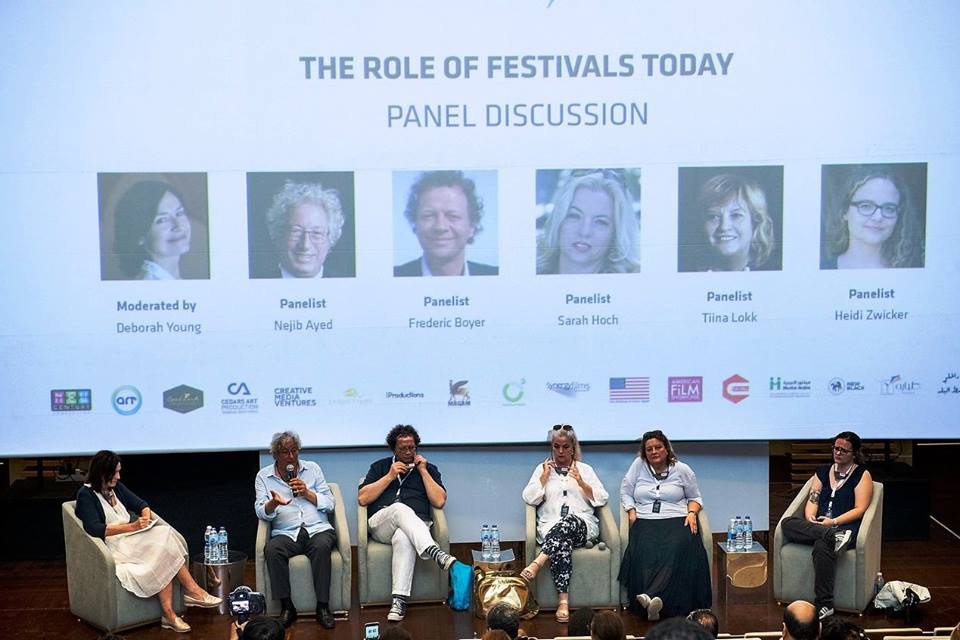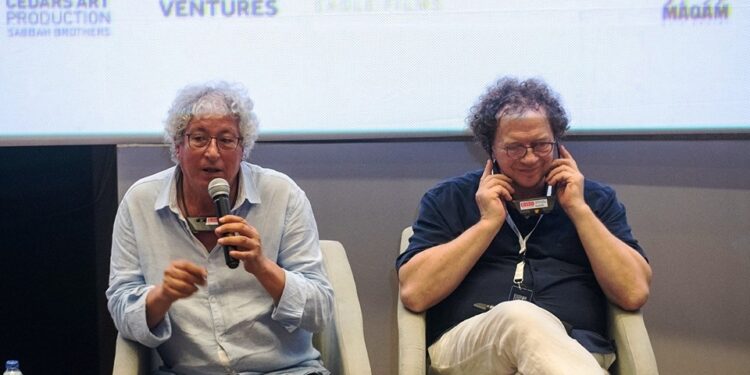In a few days, the 29 will startth edition of Carthage cinematographic days (JCC)this unique festival in the world thanks to its numerous and film buff.
Guest at the end of September last, during the 2th edition of El Gouna film festival (Egypt)to participate in an international panel on “the role of festivals today”, Mr.éjib Ayed, Director General of the JCC had declared:
“JCC is a special case. When this festival had been created in 1966, there was no Tunisian cinema, moreover with the exception of Egyptian cinema and a little bit in Iraq, there was no Arab cinema. At the time, there were short films, a few feature films … No more. We were in the midst of war against colonization in most African countries.
This festival was born thanks to the film clubs and by members of the film clubs. It is perhaps a particularity of this festival: its founding director and its audience were moviegoers. At the time, the Federation of Tunisian film clubs was the most important in the Arab and African world: 60 cine-clubs, around 60,000 members and an impressive number of projections.
Over the years, the public of the JCC has been raised and used to seeing quality films and attending the festival. What is great is that each year, we think that the average age of the public will be older, but each year, we are surprised to see that the average age is always 25 years. Young people represent around 80% of the public.
The first time I attended the JCC was in the 1970s. I was 17 years old. I lived in a city from the interior of the country. There had been an agreement between the film clubs and the festival so that the latter invited some members of the film clubs. I had the chance to be one of those elected officials.
From birth, this festival was an activist. It therefore does not have the sole purpose of projecting films, nor has never been a red carpet festival or for stars.
What is most important is that it is an Arab and African festival. However, even if the competition is only open to Arab and African films, the JCC also have a Tricontinental scope, that is to say that they are open to the three continents Africa, Asia and Latin America.


The JCCs are not intended to race for the first world projections or even regional, but public satisfaction by quality films. Of course, it is interesting to program films that have already been selected in Cannes, Toronto or Berlin, but it is not a goal in itself.
In 2017, in eight days, around 180 films were screened and 200,000 tickets sold. And according to the Interior Ministry, during these eight days, there were around 2,500,000 people at Avenue Habib Bourguiba in Tunis. When there are 1,000 people in a room, there are 1,500 to 2,000 outside.
Still in 2017, there were around 60 projections per day. This year, there will be a little more. There were also 8,000 seats, in 2018 there will be 11,500 and despite this, I am convinced that there will always be the same crowd, that the public will always be as numerous and that the queues will always be so long. These figures show and explain what the JCCs are.
If the JCCs have lasted since 1966 to today it is precisely because the public is enormous. Which does not exist in any other festival in the world!
The JCC is a festival that is unlike any other, it has its own identity, which we are proud of. I think that in the end, a festival should not try to copy another. A festival is mainly good films and an audience. Also creating a platform for professionals is very good, professionals must come, enjoy the festival, meet with each other, but the most important is the public.
At the JCC, we ensure that films in official competition are the best. A quality film is a film that is interested in the concerns and problems of people, especially minorities. It must also be original and show a certain audacity in its way of approaching subjects, whether political or social. And I think the public supports us in this choice ”.
Neïla Driss
Read on the same subject:
– Carthage 2018 Cartham Cinematographic Days in Figures
– JCC 2018 – Nine Tunisian films in official competition
– JCC 2018 – projects selected as part of Chabaka 2018









